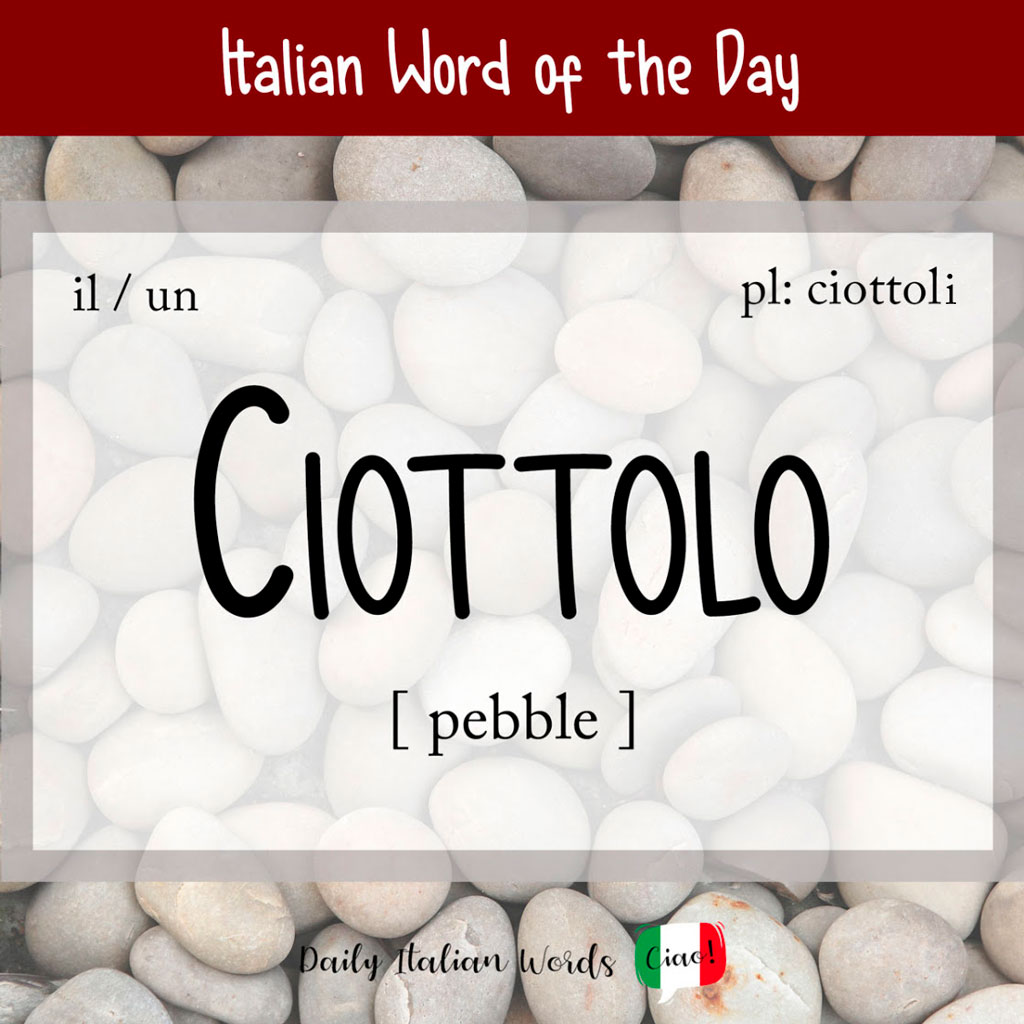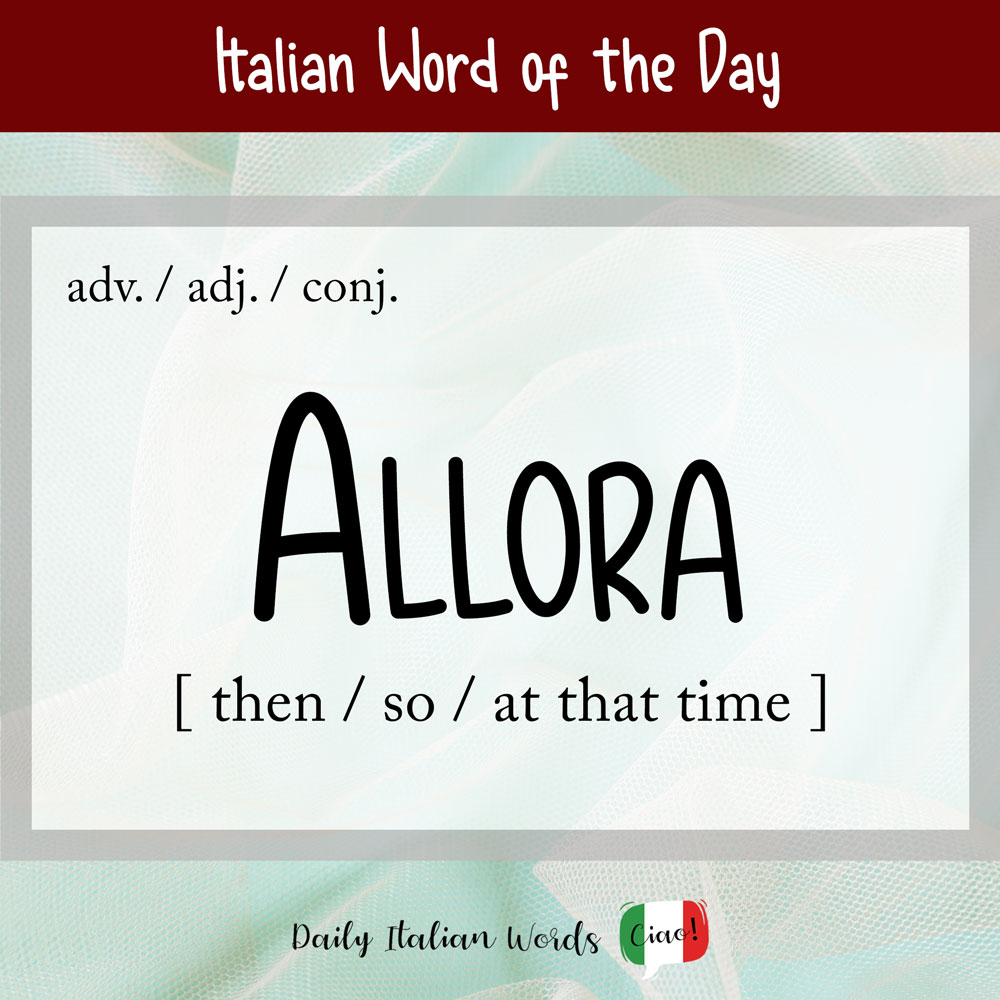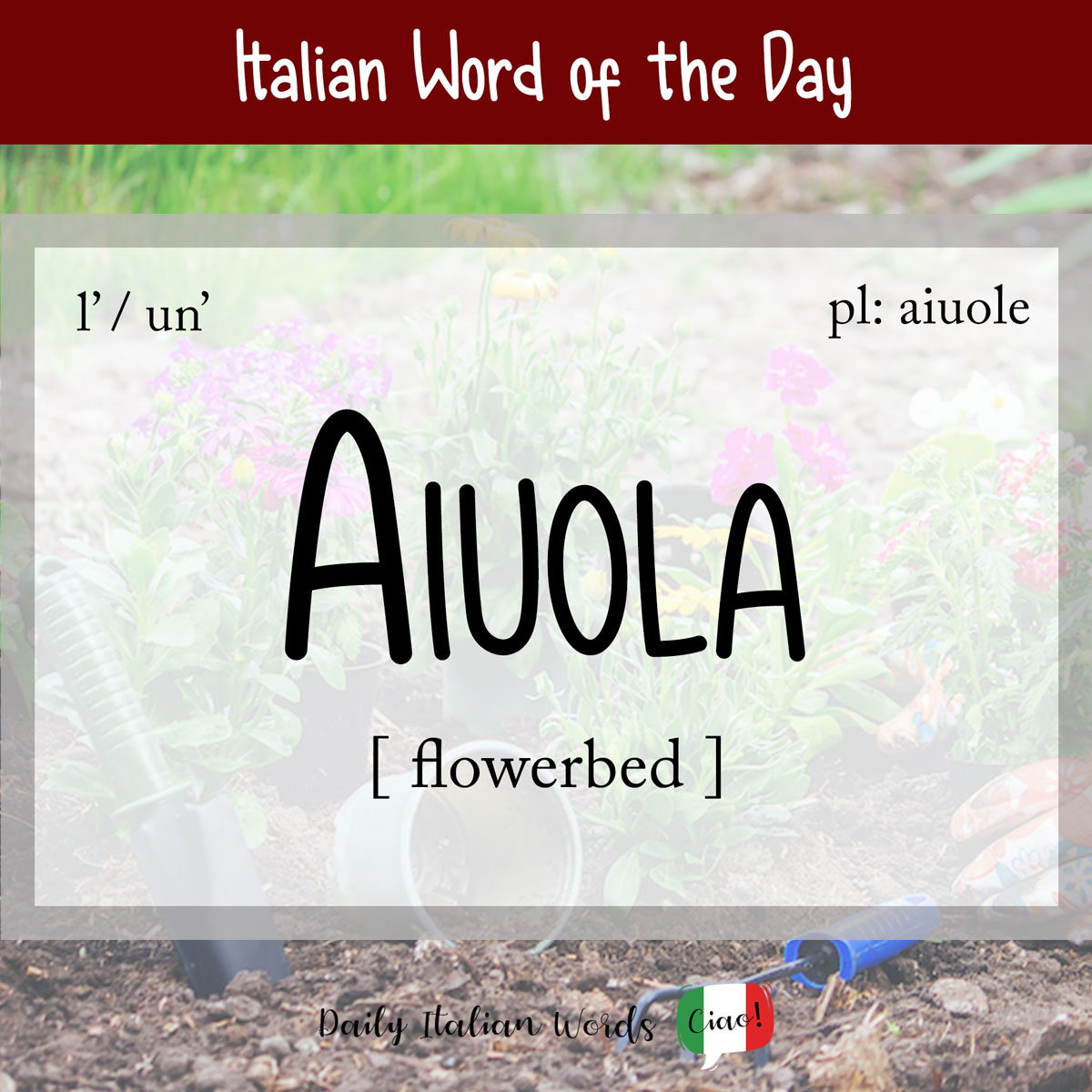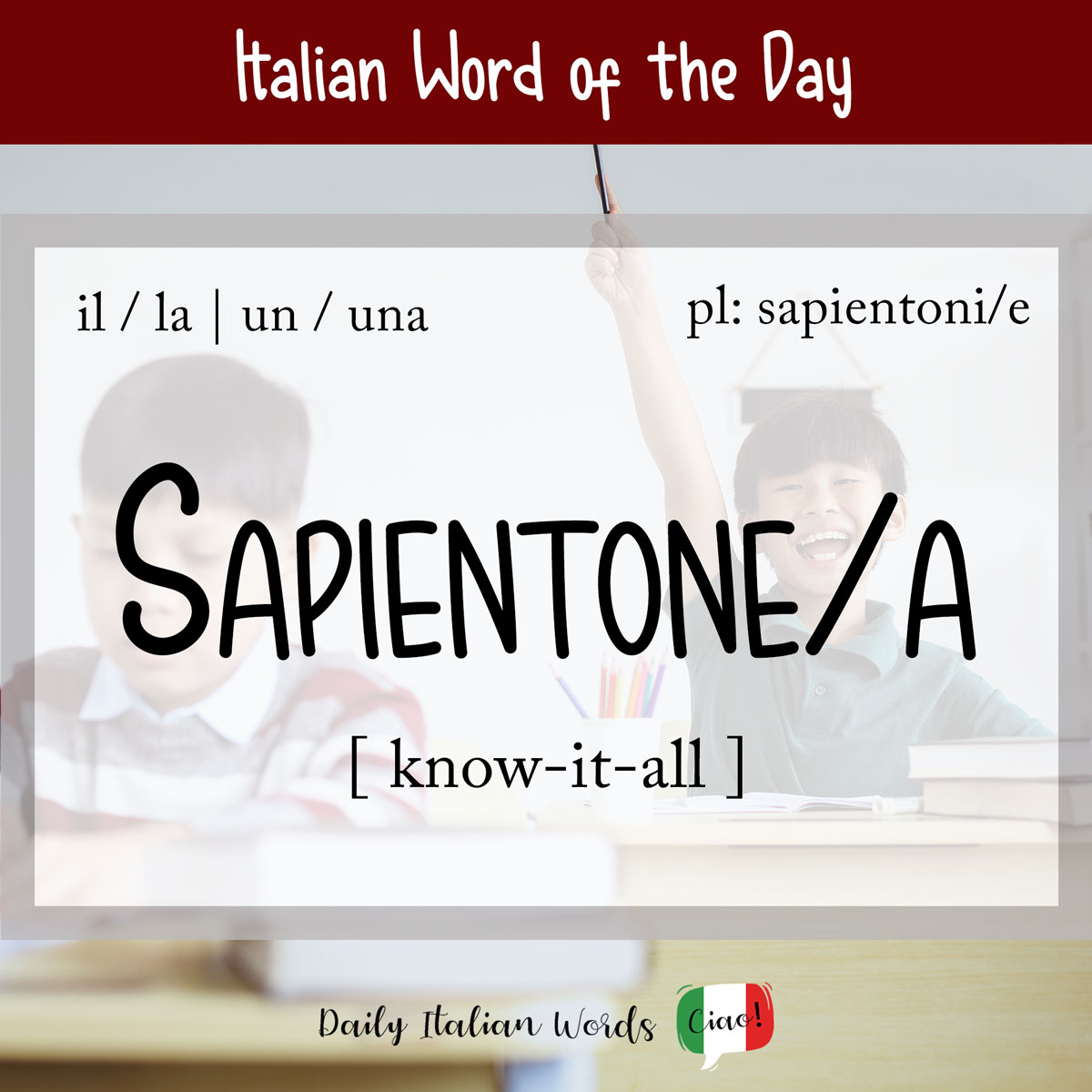Italian Word of the Day: Ciottolo (pebble)
A sasso (stone) that has been made smooth and round by the action of water is a ciottolo (pebble) in Italian. It is the diminutive form of ciotto, an archaic word for pebble. Ciottolo is a masculine noun whose plural form is ciottoli. The definite and indefinite articles it takes are as follows: Prese un …






